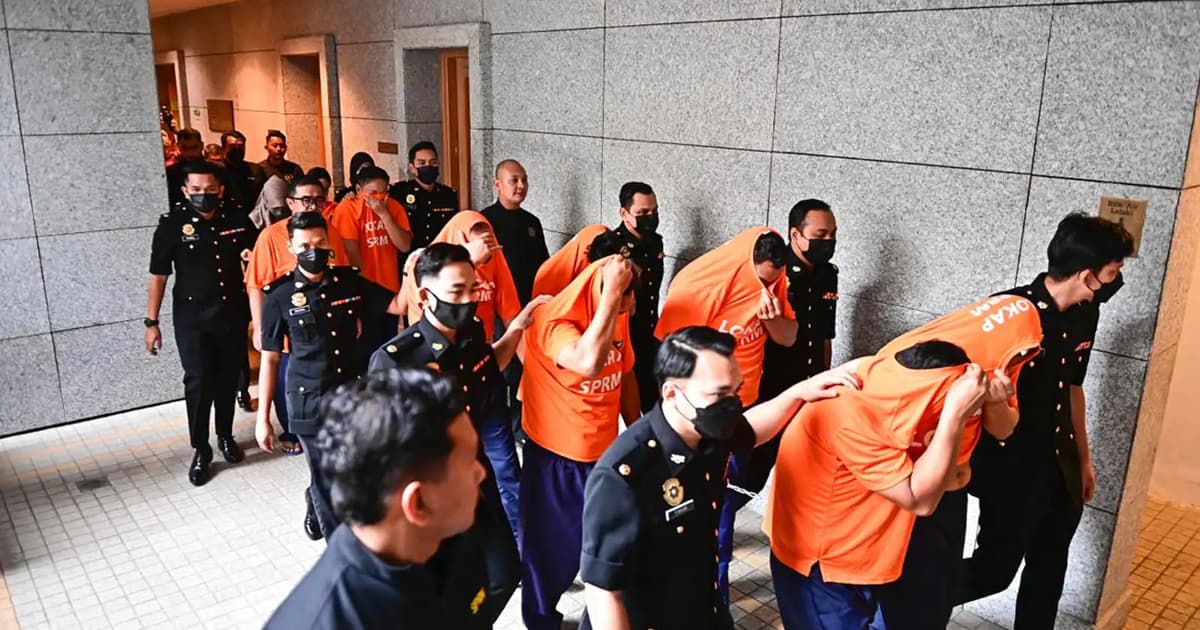
Two defence experts are calling for a sweeping overhaul of Malaysia’s intelligence apparatus, following the arrest of five senior armed forces officers linked to a sprawling smuggling syndicate.
The defence analysts said the suspected involvement of intelligence officers raises serious concerns about the integrity and reputation of Malaysia’s armed forces, particularly given the unit’s access to sensitive information.
Lam Choong Wah of Universiti Malaya and Universiti Kebangsaan Malaysia’s Salawati Mat Basir said the case highlights the need for these intelligence units to be made more accountable and transparent in their operations.

Lam said Putrajaya could draw on models from the UK and Australia to introduce legislative reforms with the aim of restructuring the country’s defence intelligence divisions, the police’s Special Branch, and the Prime Minister’s Department’s research arm.
“We need more accountability from our intelligence agencies and units. For such a long time, they have not been answerable to Parliament and thus the people.
“That is why they dare to defy the law and get involved in corruption,” he told FMT.
Salawati agreed, noting that key units and procurement processes have operated for many years under a veil of secrecy despite longstanding allegations of corruption or mismanagement in the defence sector.
“There is no other way except to be transparent. Even though they are intelligence units, they need to be observed by higher security officials. If you give them absolute freedom, this is what will happen.”
The defence ministry has been at the centre of a number of scandals over several decades, including the controversial 2002 Scorpene submarine deal and the more recent RM9 billion littoral combat ship (LCS) project saga, which has yet to be resolved.
Last week, the Malaysian Anti-Corruption Commission (MACC) said the five army and navy officers were believed to have been at the heart of a smuggling syndicate and allegedly played a role in drug distribution activities.
The anti-graft agency said the suspected officers — stationed at the country’s southern borders — are believed to have leaked information on security and enforcement agency operations over the past five years.
It said the suspects, which included lieutenant colonels, had facilitated the entry of contraband, including drugs and cigarettes — worth about RM5 million a month — from neighbouring countries.
Regional laughingstock
Salawati said this “shameful case” risks making Malaysia’s defence force a “laughingstock” in the region and could result in the country’s foreign counterparts losing confidence in the professionalism and credibility of our armed forces.

She did not dismiss the possibility that the syndicate could also be involved in weapons smuggling, given its success in bringing other forms of contraband into the country.
“This is more than drugs, liquor or other contraband being smuggled into Malaysia. This is about our country’s sovereignty being ‘sold’ by this syndicate.
“Criminals will think that they can always cut a deal with such officials as long as they can pay them off. This is the reputation that I fear Malaysia would have.”
Lam said the case would undoubtedly cast doubt over the integrity of the armed forces, and could prompt foreign intelligence agencies to reconsider its preparedness to share sensitive information with their Malaysian counterparts.






